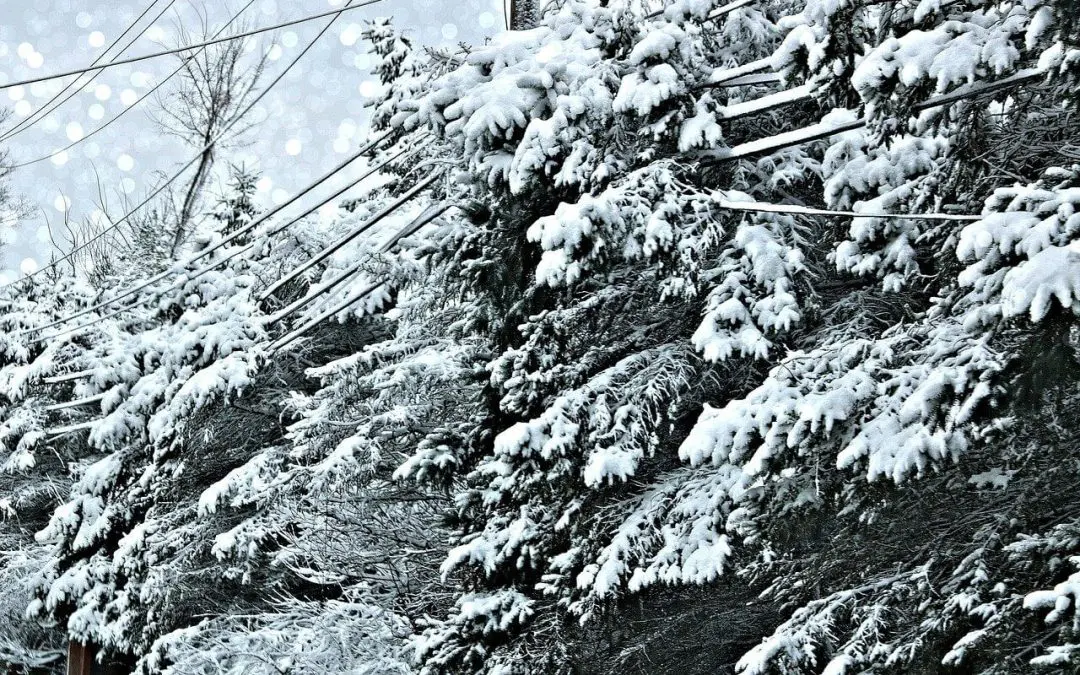Winter storms can be harsh and unpredictable, but with a little preparation, you can ensure your home and family stay safe and comfortable. There are steps homeowners should take to protect their investment. Here’s a straightforward guide to help you prepare for a winter storm.
Inspect and Seal Your Home to Prepare for a Winter Storm
The first step to protecting your home is making sure it’s properly sealed. Drafts around windows and doors allow cold air in, which can cause heating bills to spike and make your home uncomfortable. Walk through your home, checking for gaps or cracks around windows, doors, and baseboards. Use weatherstripping, caulk, or insulation as needed to keep the warm and cold air in.
Check your roof for missing or damaged shingles, which can allow water to seep in when snow melts. Clear gutters and downspouts to prevent ice dams, which can lead to significant roof damage. If climbing a ladder isn’t your thing, hire a professional to help you.
Prepare Your Heating System
Your heating system is your lifeline during a winter storm, so make sure it’s ready to perform. Schedule a professional inspection if you haven’t had one this year, and change or clean your HVAC filters for optimal performance. If you have a fireplace or wood stove, have the chimney cleaned and inspected to prevent fire hazards.
Portable space heaters can also provide additional warmth, but use them with caution. Keep heaters at least three feet away from anything flammable, and never leave them running unattended.
Stock Up on Essentials to Prepare for a Winter Storm
Winter storms can knock out power and leave roads impassable. Have an emergency kit with water, non-perishable food, flashlights, extra batteries, blankets, and a first-aid kit. If you rely on prescription medications, make sure you have enough to last at least a week.
Remember your plumbing. Insulate exposed pipes and let faucets drip during extreme cold to protect them from freezing. Locate your main water shutoff valve so you’re prepared if a pipe bursts.
Create a Plan for Snow and Ice
Snow and ice can create hazards around your home. Keep shovels and ice melt handy for clearing walkways and driveways. Invest in an ergonomic shovel to reduce strain while clearing snow, if possible.
Pay special attention to trees near your home. Heavy snow and ice can weigh down branches, causing them to snap and damage your roof or siding. Trim overhanging branches to reduce the risk.
Test Emergency Equipment
If you have a generator, test it to make sure it’s working and has enough fuel. Generators can be a lifesaver during extended power outages, but they must be used safely. Operate generators outdoors and away from windows to avoid carbon monoxide poisoning.
Smoke detectors and carbon monoxide alarms are critical during the winter months. Test them regularly and replace batteries as needed to ensure they’re ready to protect your family.
By preparing ahead of time, you can protect your home, reduce stress, and weather the storm with confidence. Taking these steps now can save you from expensive repairs and ensure your family stays warm and safe all winter.
FAQs About Winter Storm Preparedness
How can I tell if my home is losing heat?
Drafts, cold spots near windows or doors, and unusually high heating bills are signs of heat loss. A professional thermal imaging inspection can pinpoint areas of concern.
What’s the best way to prevent frozen pipes?
Insulate exposed pipes, open cabinet doors to allow warm air to circulate, and keep a slow trickle of water running in faucets during extreme cold.
Should I worry about roof damage during a storm?
Yes, heavy snow and ice can put a lot of stress on your roof. After a storm, carefully check for signs of sagging, leaks, or damaged shingles. If you’re unsure, contact a professional to inspect it for you.
How do I know if my heating system is ready for winter?
Regular maintenance is key. Schedule an annual inspection, replace filters, and test your system before temperatures drop to ensure it’s running efficiently.
What should I do if the power goes out?
Stay indoors and keep doors and windows closed to retain heat. Use flashlights instead of candles for safety, and rely on a generator if you have one. If the outage is prolonged, find a warming center nearby.
TUFF Home Inspections provides home inspection services to New Jersey. Contact us to schedule your appointment.

